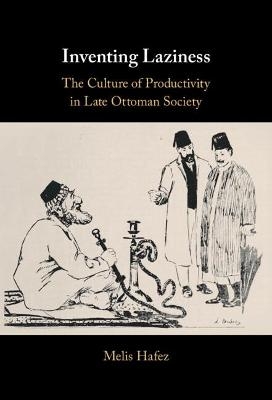
Inventing Laziness
The Culture of Productivity in Late Ottoman Society
Seiten
2021
Cambridge University Press (Verlag)
978-1-108-42784-5 (ISBN)
Cambridge University Press (Verlag)
978-1-108-42784-5 (ISBN)
A lively and original study tracing the development of 'laziness' as a social problem in the Ottoman Empire over the long nineteenth-century. Hafez explores the anxiety about productivity that generated reforms as well as new understandings of morality, subjectivity, citizenship, and nationhood among the Ottomans.
Neither laziness nor its condemnation are new inventions, however, perceiving laziness as a social condition that afflicts a 'nation' is. In the early modern era, Ottoman political treatises did not regard the people as the source of the state's problems. Yet in the nineteenth century, as the imperial ideology of Ottomanism and modern discourses of citizenship spread, so did the understanding of laziness as a social disease that the 'Ottoman nation' needed to eradicate. Asking what we can learn about Ottoman history over the long nineteenth-century by looking closely into the contested and shifting boundaries of the laziness - productivity binary, Melis Hafez explores how 'laziness' can be used to understand emerging civic culture and its exclusionary practices in the Ottoman Empire. A polyphonic involvement of moralists, intellectuals, polemicists, novelists, bureaucrats, and, to an extent, the public reveals the complexities and ambiguities of this multifaceted cultural transformation. Using a wide variety of sources, this book explores the sustained anxiety about productivity that generated numerous reforms as well as new understandings of morality, subjectivity, citizenship, and nationhood among the Ottomans.
Neither laziness nor its condemnation are new inventions, however, perceiving laziness as a social condition that afflicts a 'nation' is. In the early modern era, Ottoman political treatises did not regard the people as the source of the state's problems. Yet in the nineteenth century, as the imperial ideology of Ottomanism and modern discourses of citizenship spread, so did the understanding of laziness as a social disease that the 'Ottoman nation' needed to eradicate. Asking what we can learn about Ottoman history over the long nineteenth-century by looking closely into the contested and shifting boundaries of the laziness - productivity binary, Melis Hafez explores how 'laziness' can be used to understand emerging civic culture and its exclusionary practices in the Ottoman Empire. A polyphonic involvement of moralists, intellectuals, polemicists, novelists, bureaucrats, and, to an extent, the public reveals the complexities and ambiguities of this multifaceted cultural transformation. Using a wide variety of sources, this book explores the sustained anxiety about productivity that generated numerous reforms as well as new understandings of morality, subjectivity, citizenship, and nationhood among the Ottomans.
Melis Hafez is Associate Professor in the Department of History at Virginia Commonwealth University. She holds a PhD from the Department of History, UCLA. Her scholarship spans late Ottoman Empire and the modern Middle East, with a focus on social and cultural transformations.
Introduction; 1. Moralizing productivity in the age of reform; 2. Criminalizing laziness: Punishment, reward, and negotiation in the Ottoman bureaus; 3. Imagining Ottoman dandies and industrious effendis; 4. Militarizing the productive body; 5. Exclusionism at work: Politics, power, and productivity; Epilogue; Bibliography; Index.
| Erscheinungsdatum | 29.11.2021 |
|---|---|
| Zusatzinfo | Worked examples or Exercises |
| Verlagsort | Cambridge |
| Sprache | englisch |
| Maße | 158 x 235 mm |
| Gewicht | 613 g |
| Themenwelt | Geisteswissenschaften ► Geschichte ► Regional- / Ländergeschichte |
| Geschichte ► Teilgebiete der Geschichte ► Kulturgeschichte | |
| Sozialwissenschaften | |
| ISBN-10 | 1-108-42784-7 / 1108427847 |
| ISBN-13 | 978-1-108-42784-5 / 9781108427845 |
| Zustand | Neuware |
| Informationen gemäß Produktsicherheitsverordnung (GPSR) | |
| Haben Sie eine Frage zum Produkt? |
Mehr entdecken
aus dem Bereich
aus dem Bereich
der stille Abschied vom bäuerlichen Leben in Deutschland
Buch | Hardcover (2023)
C.H.Beck (Verlag)
23,00 €
vom Mittelalter bis zur Gegenwart
Buch | Softcover (2024)
C.H.Beck (Verlag)
12,00 €


